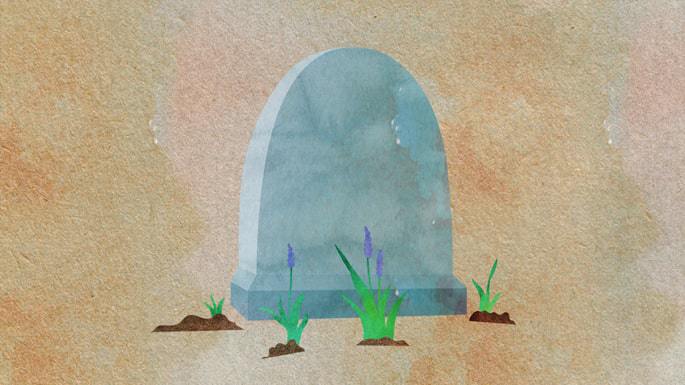What is death? This is best answered with another question: What is life?
Life is the integration of soul and body—the self and its physical vehicle—into a single entity. Death is the dissolution of body and soul into two separate entities—a separation of the spiritual self from that which was once a vehicle to that self.
The self is the soul, not the body. The body will inevitably fail and The soul is eternal and indestructible disintegrate; the soul is eternal and indestructible. The stretch of physical time in which the soul resides within and acts through the body is just one phase—though a most important phase—of its existence, an existence which precedes physical life and extends beyond it. The soul of the person we knew and loved as a physical being on this earth continues to exist after his or her death, continues to be aware of that which transpires in our lives, and continues to be the recipient of our love and the positive actions we do on his or her behalf.
But also for the body, death is not the end. A fundamental principle of the Jewish faith is the belief in techiat ha-meitim, ("resurrection of the dead")--that in the future, divinely-perfect "World to Come," the soul will be restored to a rebuilt and revitalized body, so The soul of the person we knew and loved... continues to be aware of all that transpires in our lives, and continues to be the recipient of our love and the positive actions we do on his or her behalf... that body and soul, once again fused together as a living being, should enjoy the fruits of what they accomplished together in toils and tribulations of our present-day existence.
So while the soul is the higher, more spiritual incarnation of the self, the body, too, must be accorded the ultimate respect and sanctity, as befits the vessel of the soul.
This understanding of death underlies the Jewish approach to death and mourning. All the laws, customs, beliefs and mystical motifs related to death—its prequel and sequel, the treatment of the deceased, the approach to mourning, and the ways in which the departed is memorialized—are driven by a series of dichotomies. To wit:
-
We do everything in our power to sustain life and avoid death; for each and every moment of life is sacred, as it houses the soul's presence in our world, and constitutes an integral part of its divinely-ordained mission in life. On the other hand, the moment of death is accepted as the will of the True Judge, who alone knows when the soul's mission in the physical world has been fulfilled.
-
We mourn the tragic eclipse of the deceased from the realm of our lives —while continuing to affirm the continuing trajectory of his/her own life.
-
We show profound respect for the body, the necessary and indispensable vehicle that enables all the souls' accomplishments during life —while never allowing ourselves to imagine that the body we take leave of is actually the person we mourn.
-
We seek to create long-lasting memorials to the deceased —yet engage in practices that express the belief that the deceased is truly among us.
From these dichotomies derive the fundamentals of the Jewish way in death and mourning:
-
Determining the occurrence of death. Death is when the soul no longer animates the body, not when the body cannot express the soul. (See End-of-Life Issues)
-
What is done—and not done—with the body. The body must be treated as a holy object —in a way that demonstrates its partnership in the soul's eternal endeavors. At the same time, it may not be treated as if it was the entirety or even the primary aspect of the person. (See Funeral and Burial).
-
The depth—and limits—of mourning. One must mourn but not despair due to the loss of this individual from our lives. (See Shivah and Mourning)
-
Memory and connection. We engage in spiritual activity that affirms our continuing relationship with deceased and the deceased's continuing path of life. (See Kaddish and Memorial)
-
Not the end. We believe that death is a temporary and reversible state; a stage of life, not its destination. (See What Happens After We Die?)
Also See:
What is the Soul?
What Happens After We Die?
The Jewish Way in Death and Mourning
Night and Day




Join the Discussion